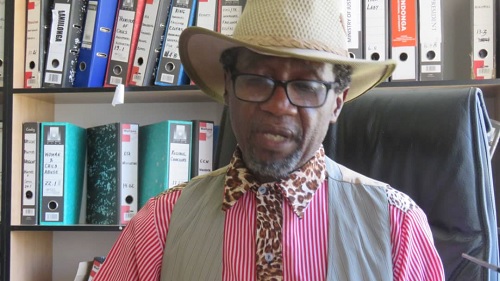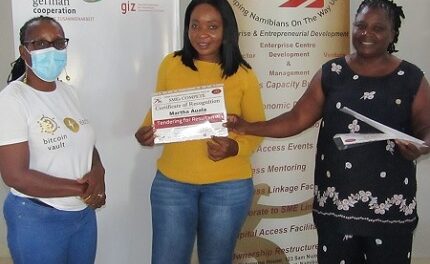
By Elina-Ombili Shishaki /
The Access to Information Act, Act No. 8 of 2022, is an ambitious piece of legislation. It seeks to serve as one legislative authority that gives the right of ease of access to information that may be in possession of those in authority.
The Access to Information (ATI) Act, passed by the Parliament of Namibia and already signed by the President in 2022, aims at creating an environment where there is transparency, accountability and good governance which lead to a knowledge-based society.
In order to comply with this law it is a must that both public and private entities have an open door policy, as is required in a democratic society where decision-makers are answerable to the public and always ready to disclose information related to their work in serving the public.
The ATI Act will thus help in combating corruption-related activities in institutions of the state, likewise other public institutions, or institutions serving the public in one way or the other, as well as combating other activities which thrive in an environment where secrecy is institutionalised.
The Ondonga Traditional Authority is one such institution serving the public, but one that has public servants who serve according to the customary laws, inherited common practices and the communal rules of the Aandonga people.
Under the supreme leadership of Ondonga King Fillemon Shuumbwa Nangolo, the Ondonga Traditional Authority, as the administrative arm of the king, will have its doors open to anyone in search of any information for as long as the person understands how to deal with the information and knows how to use such information in accordance with the customary laws, common practices and communal rules of the people of Ondonga.
“However, information or details related to the Ondonga traditional court cases cannot be shared with anyone,” stated Ondonga Traditional Authority (OTA) spokesperson Mr Frans Enkali.
Enkali was responding to queries from Omutumwa about the view of the traditional authority on the Access to Information Act.
“Yes, I am aware that there is such a law but I am yet to study and understand what it has in store for us,” Enkali said.
“The biggest challenge is that not all people will find it easy to understand [the ATI Act] more especially those that stay in rural areas, but as the Authority we have to act in accordance with the law to ensure that people have full access to any information in our possession which they may require.”
Enkali contended that as far as Ondonga Traditional Authority is concerned all information can be shared, except for traditional court proceedings and court cases. “Such cases cannot be shared because they are considered confidential,” he emphasised.
But he insisted that access to all other information is necessary, and that people need information for them to live in harmony and for information to be made more accessible to stop ignorance and avoid any misinformation.
“It is best to always get the right information from the right authorities in order to prevent the spread of rumours and misinformation. When you get authentic information it lets you avoid misinformation,” Enkali stressed.
Enkali’s concern is only whether the Access to Information Act makes provision too as to how information accessed may be used and not be abused.
“We want our people to be educated and informed on how to handle information as it is in the public’s interest that not only is it important that the information obtained is always correct but that such information is being used in a correct manner too.”
He also expressed concern that information may be exposed to modern digital platforms, which include social media, and eventually come out only to prove harmful to other users.
Traditional authorities usually have a mandate to stick to culture and customs of which they operate under, but, still, Enkali said, they have desire to function according to the dictates of the ATI law.
They especially wish to make all information pertaining to acquiring land including land tenure requirements to be made available to the general public.
“This act is best for all Namibians not only for traditional authorities but other institutions as well.”
For Enkali, the Access to Information Act will generally prove to be in everyone’s best interest as it prioritises honesty in everything.
“As said by Thomas Jefferson ‘Honesty is the first chapter in the book of wisdom,’” said Enkali.
In the photo: Ondonga Traditional Authority’s spokesperson Mr Frans Enkali.

[NB. This article was produced with the financial support of the Namibia Media Trust, through the New Voices, New Narratives in Public Policy Discourse project. Its contents are the sole responsibility of Omutumwa and do not necessarily reflect the views of the NMT nor any of its partners.]







